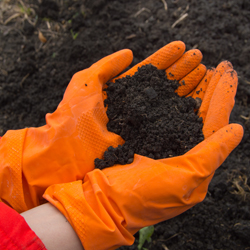Property Needs Environmental Cleanup? Don’t Scrap It, SCAP It!

Property owners in California may have access to state funds for environmental cleanup of smaller brownfields projects. The money comes from two pieces of environmental legislation passed in 2014.
The Proposition 1 Groundwater Sustainability Program authorized $7.545 billion in bonds for a variety of water projects, including storage, restoration and protection efforts. The State Water Resources Control Board (“Board”) was directed to distribute the funds amongst five separate programs; one of which includes the Groundwater Sustainability fund – it would receive $800 million.
California Senate Bill 445 was an emergency measure also approved in 2014. The bill, essentially an amendment to the long-established Underground Storage Tank Cleanup Fund (“UST Fund”), provides for “. . . investigating and cleaning up contaminated sites without regard to the source of the contamination, particularly where there are no viable responsible parties . . .”
Thus, unlike the UST Fund, the source of the contamination need not be an underground storage tank; and, unlike the case with the UST Fund, the contamination need not be petroleum-hydrocarbon based.
This part of SB 445 falls under SCAP, or the Site Cleanup Subaccount Program, funded with approximately $20 million in state money, plus local matching funds. That may not sound like a lot of money for environmental cleanup, but for some property owners, SCAP may provide the perfect solution.
Navigating Clean Water Resources

Cleanup projects eligible for SCAP funds include those properties that:
- May cause harm or potential harm from surface or groundwater contaminants
- Have been polluted by human-made contaminants, e.g. nitrates (common in fertilizers), perchloroethylene (used in dry cleaning industry), pesticides, hexavalent chromium (commonly found in welding projects, paints, chrome plating), etc.
- Received a directive from a regulatory agency
- Are owned by responsible parties with limited resources
- May include site characterization, source identification or implementation of cleanup.
Certain applicants for SCAP funding will be given priority, including those that are significantly threatening to human or environmental health. Other priority projects include those in disadvantaged communities or those that cannot receive other cleanup funds.
The Board will also balance costs of cleanup vs. benefits.
Before applying for SCAP funds, property owners should first pre-apply for the Groundwater Quality Funding Program, through the Financial Assistance Application Submittal Tool (FAAAST). SCAP applicants will need to complete a grant agreement form, as well as forms describing the cleanup work to be done and the budget for such work.
Stephen T. Holzer is a Business Litigation Attorney and the Chair of our Environmental Practice Group.
